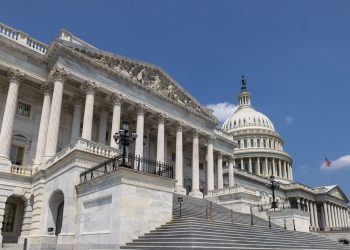 International investment in U.S. real estate could soar to new heights in 2015, thanks to the reciprocal U.S./China visa agreement that will issue five-year, multiple-entry visas to students and 10-year, multiple-entry visas to business travelers and tourists. The policy changes went into effect Nov. 12.
International investment in U.S. real estate could soar to new heights in 2015, thanks to the reciprocal U.S./China visa agreement that will issue five-year, multiple-entry visas to students and 10-year, multiple-entry visas to business travelers and tourists. The policy changes went into effect Nov. 12.
Among other effects, the new visa agreement mitigates challenges for those investing in property abroad—namely, real estate purchased by Chinese parents for children studying in the U.S. For students participating in four-year degree programs, the five-year extension presents a welcome change.
“Chinese individuals on the fence about investing in the U.S. are encouraged by the new visas,” says Andrew Taylor, co-CEO and co-founder of Juwai.com, a global real estate information platform serving the world’s Chinese communities. “They make a big headache go away.”
Barring outside factors, Taylor predicts at least a 15 percent increase in Chinese investment in 2015. According to the NAR 2013 Profile of International Home Buying Activity, China and Canada have been the fastest growing sources of international clients. Transactions involving Chinese buyers account for 12 percent of total reported international transactions, with many opting for all-cash purchases.
“Mainland Chinese buyers have the highest average price range and pay in cash about 70 percent of the time,” Taylor says. Juwai users report an average budget of $3 million and a median property purchase price of $425,000—well above the overall U.S. median of $199,500. Top areas for real estate investment include New York City, Los Angeles, Philadelphia, Detroit and Houston.
For real estate practitioners, the new visa policy imparts an opportunity to carve out a global niche. Chinese clients, like any other client, seek an agent that maintains high standards of professionalism.
“International buyers have an exceptionally strong bond to their agent,” notes David Lauster, real estate specialist, U.S. State Department, in the Sept. 2014 issue of Real Estate magazine. “They display an admirable and long-lasted appreciation for the assistance and knowledge that agent brings to the transaction.”
That assistance and knowledge trumps all – including specialized skill sets. Fluency in a second language, for example, is not necessarily required.
“One of the biggest questions I get is, ‘Do I have to learn Mandarin?’ The answer is no,” Taylor says. “Just do your job well. That’s enough.”
“No special qualifications are needed,” says Noah Seidenberg, broker associate with Coldwell Banker Evanston in Evanston, Ill. Evanston is home to one of Northwestern University’s campuses, which collectively house over 5,000 international students, faculty, researchers, visiting scholars and staff from more than 110 countries. Seidenberg receives inquiries from foreign buyers on a regular basis, particularly during peak enrollment periods at the university.
“The process legally is often not the same in the U.S. as it is when purchasing property and obtaining title in their native country, so there is a period of explanation, walking the person through the steps, much like a first-time buyer,” Seidenberg adds.
With the policy changes propelling an already emerging segment, Taylor recommends taking advantage of the boost with a two-fold approach:
- Brand services on a global level.
Make it known that you market listings in China. “Home sellers read the news, and they want the best price. Show them you’re best equipped to get it for them because you are marketing to their largest, biggest spending and fastest growing group of overseas buyers.”
- Prioritize international marketing.
Initiate a dialogue by reaching out to Chinese buyers. “Make international marketing a basic part of your business that you attend to every day or week, just like you do with cold calls, mail-outs or community marketing.”
Given the existing correlation between the number of Chinese students educated in American schools and Chinese investment in U.S. real estate, the student visa extension may have a much more immediate impact on the U.S. housing market than the business traveler and tourist visa changes. By taking these steps, U.S. real estate professionals will lay the foundation for long, productive relationships with international buyers.
“Every family has its own situation,” Taylor explains, “but underlying all of them is a faith in the U.S. real estate market and a desire to own their part of it.”











